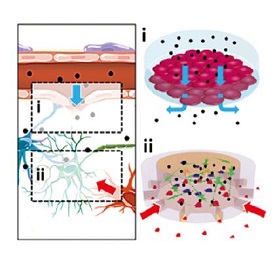
Recent research has discovered the physiological mechanism behind how the exposure of fine particulate matter (PM2.5) emitted from car engines induces neuroinflammation and neurodegeneration in human brains. The study was conducted by a joint research team of Professor Cho Hansang from the Institute of Quantum Biophysics at Sungkyunkwan University and Professor Charles Y. Lee from the Department of Mechanical and Aerospace Engineering at North Carolina State University. By cultivating human neural stem cells and immunocytes in a three-dimensional microfluidic platform, they created PM2.5-polluted human brain models (PMBs). The PMB model explained the impacts of PM2.5 penetrating across a blood-brain barrier (BBB) and accumulating in the brain tissue, which result in neuronal damages such as synaptic impairment, phosphoric tau accumulation, and even neuronal death. The study suggests that PM2.5 could be a potential reason for brain diseases, including dementia, mediated by detrimental neuroinflammation and neurodegeneration. Prof. Cho said, “The results of this study could be utilized to develop treatments for preventing early deaths related to fine particulate matter.” The study was published in the October issue of Advanced Science, an eminent journal that publishes the best international research on interdisciplinary studies.
